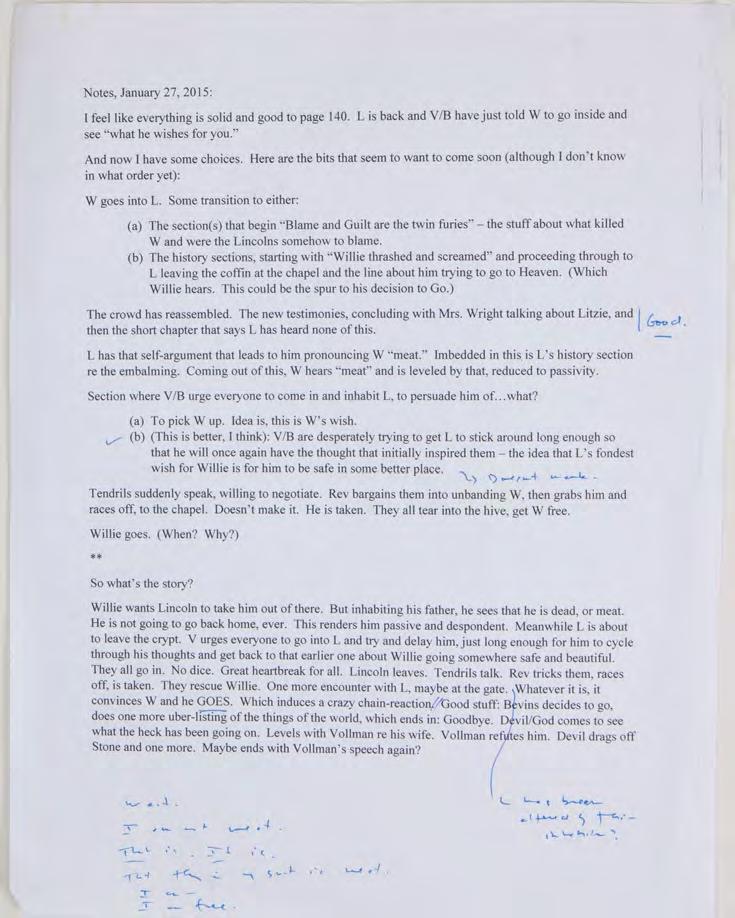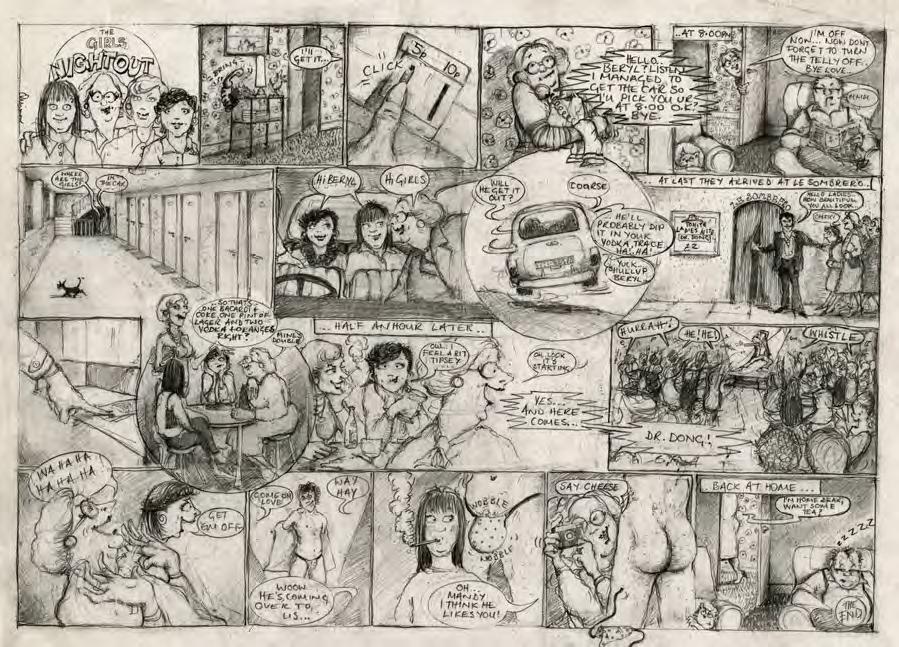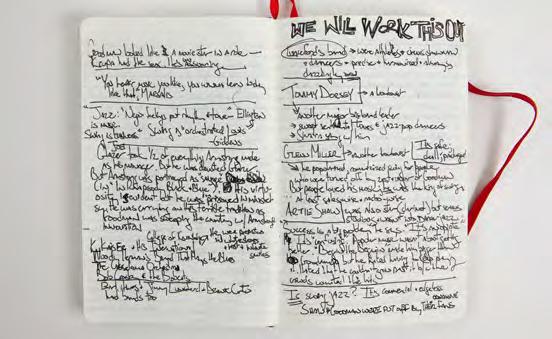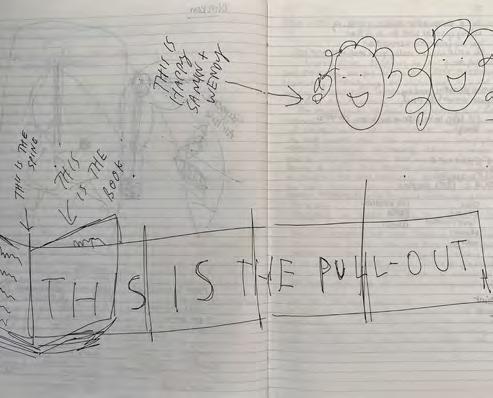
8 minute read
EMAIL TYPSET
Is ad quo blaudit digenist essequaepra nobit omnimus cipsum rem ea int eicid eos earum rehenim autatur, cum voluptas is disto explibus.
Nem dolecta tuscima gnatiberum, quaecab iuntibu stiostion nonseque verumquasped quiaestibus ene dene consequae sit, quuntem. Cestore ditatur, sit que conse nobis magnatem elitia nonsendit vent aborerum rehentur abo. Il id quias essi ommolum adipsum, que quas aliquis truptam, quistet elisinis modi ditas pla dolor sam eos inte omni ut quis nonet fugiate magnitatur audit ut explabo. Itatiamus nobissitatia veria voluption repe volenes ediatust occatur?
Advertisement
Ent eum uta por as am quam que sed ullias venientia anda verferum il minis ent aut eaquia dit rendellab id quid quis exerumende ipsaniendam quo illabor sequas esti ut magniminvel eos autae veliquuntem reicte consequi ide laccat officillor sed qui dem et pligenit vel moluptis evelitatur, sanditi adipsunt, occum fuga. Nam harum re sim aut faccaesequas reptia corem il minctumqui auda con ea dolorum nus.
Otatius net fugit porum quid molor remperspitem nisquost, tet adi coremporro verro quatemp eligenis erfera sa dolore et etur, conseque secum que plaut eos repudignissi consequatur? Quia nonsequatis si ut resedis doluptur, cones erro est, quos nature pori niet es necumquisqui quia nost, natiantiis molectas aut omnimetur?
As nonsectiae nam inctotate consequ atquiam velit, qui dolupta eume sendi doles repturit que verias min con actually pretty decent. That means in a single day I sketch, sketch, sketch in six minutes of it.”
He is also enormously – and to me, surprisingly --collaborative. As he went along, he sent little bits of the piece to Harley, asking if this is what he’s wanted, and to make sure it was playable.
He says he is deliberately casual in these notes to allow his correspondent to object or demur if he wants to. Harley was enthusiastic from beginning to end. It took Nico about fifteen months, from that first call to the premiere to complete the piece. And true to Nico’s hope for the piece, it has in fact been played at universities across the country.
Origin Story There aren’t many children who would embrace the early sacramental music of Orlando Gibbons, and Nico was certainly an unusual child. But Nico insisted he was not by his own description a prodigy – at least in the way we tend to think of them.
“My mother was a painter, my father was a documentary filmmaker. There was music in my house, but not a striking amount of it. My mother listens to music obsessively when she paints, but it was the usual kind of NP-plus diet -- you kind of absorb it. We lived in Providence, we moved into a house with a kind of superjacked up piano in the basement, we brought it upstairs, and it was decided that I should kind of maybe take lessons and I’m nine at this point, which is very old. I didn’t take to piano particularly well. Like clearly I was in some way talented, but I wasn’t a prodigy. I was an only child. I didn’t play sports. Oftentimes I was jealous of people who had the kind of camaraderie you have in sports, and piano was an incredibly solitary thing. Someone in school was like, I’ve been singing in the boy choir you should check it out. With the choir you’re on a team and I really liked it. And you’re learning a new language because like half of it was in Latin, and the music was from the 16th century, and I loved it. And then I was like 11, and it just kind of clicked and suddenly I was good at both things – piano and choir. It was over just a couple of months. And I think it’s mysterious about why that happened. It was just that something required these two different muscles to work together. And at the time, I thought well, what if I tried to write music just to see what that feels like. I wrote a little thing for the choir, and they did that.
“So it was a perfect storm, involving parents who were their version of supportive – I mean, they weren’t even close to the types of parents I would later encounter. And it wasn’t like then I saw the Mona Lisa, and go. I know people who have had their shit changed by an amazing performance. It wasn’t like that. It’s really an anti-Romantic origin story about music-making. It’s just sort of accretion, which is compositionally how my music functions.”
“And I was very technically facile on the piano which helps because it’s easy to see what’s going on. So if you’re playing Bach it’s like, that’s cool. Let me try that chord, you can imitate it.
“Then I switched to a fancy private school, with a better music program. And oh --- right ---then I went to Rome. My mother went to the American Academy of Rome and it was decreed I would go with her. And then a series of really serendipitous things occurred. For one, there was an empty composer’s studio there with a piano, and they were like sure, take it. And there was a concert pianist who agreed to teach me. And at this point I’m 13. And suddenly I’m in Rome alone basically, and I have all this time. And I’m furious at my mom because who had [dragged me to Rome.] But when I was there, I started writing a lot of music just for fun. So Rome was kind of miraculous.
He came back to the U.S., entered a music program near Tanglewood where he first met others of his kind. “Like whoa, here are ten other kid composers. Suddenly you’re surrounded by people who are doing what they’re meant to be doing and doing it really well. I would write up there, like a piece a week, and there were moments of, this sounds like stuff that I like by other people, only by me. That’s cool.”
And at that point, “it started to turn into this totally maniac relationship to it that has basically continued unbroken since that time. In hindsight I must have been really difficult to be around.”
Though he had less formal training than his peers, he entered Julliard (“And looking at some of the students there, I recognized something very dark, which is what happens if you sacrifice your childhood on the pyre of your talent? I’d see these haunted violin players with sunken faces who had done unspeakable things to their sanity, people you know who came out of their mom’s vagina with the violin, and I thought I don’t know if that’s my vibe.”). He began to write music for his fellow students to play. “ My friend Nadia asked me to write a piece for a recital and I was, well, okay. And so I write it, and I realize it’s the only contemporary piece in the program. And it’s next to Bach. And people start calling you and saying “write something for my recital.” And then, as he’s getting a Masters in Juilliard, it all starts to happen: commissions, a valuable apprentice/assistantship with Philip Glass, his first record in 2006. Not long after he had achieved white-hot fame not just as a wunderkind but also as an unusually charismatic artist, more like a pop star than many pop stars.
Well and Unwell Now he’s in his early forties, and it’s not like he let up in the period between Juilliard and Reliable Sources , or after. It is a relentless life – manic by his own admission. Nico has many talents; and a surprising one to me is what a good writer he is, thoughtful and open . He has a blog that he writes now and then. One of his little essays is called “Thoughts on Being Well,” and it starts like this:
“I have been, it turns out, unwell for long time . . .I felt empty, or invisible. This physical manifestation of the work wasn’t something I’d made; it was something that was happening around me to which I was a passive and silent witness.” It continues in this heartbreaking fashion. He feels better now, having altered his medical regimen, but I thought it was worth taking about, especially given the links people make between creative expression and, well, madness.
“I know people have these romantic notions of like, Mozart must have been mad, but you shouldn’t romanticize it ever.” he said. “It’s horrible. It is not a gift. I want to treat it like diabetes, where it’s this constant pain in the ass thing that you just try and keep under control – something that exists and that’s dangerous and to a certain extent wants you dead, but you just have to deal with it. I check in with myself about my meds, I try to figure out if there are any external stressors.”
The stressors tend to be the kinds of irritants most people take in stride, but the wiring that makes him so productive is fragile –is there a cause-and-effect here? It would be impossible to know. “Very rarely is it work that does it.” he said. “Oftentimes the stressors are bizarre – really random things like if the NY Times does one of those article roundups like three easy things to cook this weekend, if the order of the articles is different from the headline. Or how Apple Music works, the frustration I had earlier.”
“The contract I make with the universe everyday is that I’m going to do the best that I can, and in return I would like the fucking web people to do the same. It can register as anal and meticulous but it’s not that, it really is this contract: do the work well . And it’s not about things not necessarily working, it’s about the effort. Because my mania gets triggered when I start to feel like my sense of reality and other people’s sense of reality are different.”

This strikes me as crucial. The remark seemed to take us back to his own origins. It seemed to me that an important aspect of what pushed him forward was a need for a kind of companionship, a search to find others who were like him -other hothouse creatures with unusual talents but also drive and idiosyncratic brains that perform best in the higher atmosphere. That’s Nico’s friend -group and his matrix of collaborators – happy ending: he found his own planet. And that’s a planet most people will never live on. But I found it reassuring and, perhaps in these pages useful, to note that in Nico’s mind, what distinguishes this tribe is not the result but the effort.
He talks about one kid in the orchestra for the original Reliable Sources premiere. “At a certain point because I’m old I don’t care if people play my music badly, “ he says. “It’s kind of like, cool. There was this solo being played by a super eager boy-- and he completely shat the bed in the performance! And I was like, this is good. This is what you want: I have fucked up on stage in ways that fixed the problem that made me fuck up.”
“Had I just always not fucked up, but been nervous in that way, it would have eventually lead to a serious disaster. And that happens to everyone, always. Compositionally for me, the death is if it’s something’s too long. And you literally cannot know this until the premiere. Even in rehearsals, you might think, oh it’s a little long but the energy of the premiere will fix it, not a problem. And then there you are in a roomful of 1000 people and you just feel everyone taking a breath in this fucking part I should have cut eight months ago. Opera is the absolute worst of this. It will 100% happen.”
“If you make a mistake that’s done with energy and commitment, even if it’s a chaotic feeling, it changes you. In a way that a lazy mistake doesn’t.”
“You really do just have to fuck up.”










